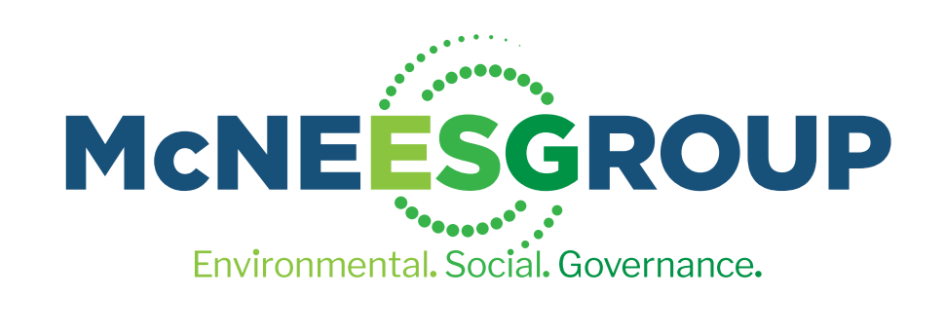Navigating the UN's Corporate Sustainability Due Diligence Directive (CSDDD): Imperative Insights for US Companies
Parliament achieved a groundbreaking moment with the provisional political agreement on the Corporate Sustainability Due Diligence Directive (CSDDD).

In the early hours of December 14, 2023, the Council of the EU and the European Parliament achieved a groundbreaking moment with the provisional political agreement on the Corporate Sustainability Due Diligence Directive (CSDDD). Led by Lara Wolters, this directive has been hailed as historic, as it compels companies within the EU and beyond to undertake comprehensive due diligence on their global operations and value chains, specifically focusing on environmental and human rights impacts. The agreement also mandates companies to formulate a transition plan for mitigating the effects of climate change.
This blog post, prepared by McNees Group, a boutique ESG consulting firm, seeks to shed light on the fundamental aspects of the CSDDD deal and its potential implications for US companies, drawing on insights from various press releases and analysis provided by legal experts, including Hannah Edmonds-Camara, Daniel Feldman, Cándido García Molyneux, Paul Mertenskötter, Emma Sawatzky, and Bart Van Vooren.
Understanding the CSDDD Agreement
The CSDDD is designed to impose significant due diligence obligations on large companies, transcending geographical boundaries. Key elements of the agreement include defining the scope, determining the date of application, specifying the value chain covered, addressing the financial sector's role, outlining due diligence obligations, and establishing enforcement mechanisms.
1. Scope of the Directive:
The agreement narrows down the scope to EU companies with more than 500 employees and a net worldwide turnover of €150 million. Non-EU companies are also included if they generate a net turnover of €150 million in the EU, with the Commission tasked to publish a list of in-scope non-EU companies. While small- and medium-sized enterprises are seemingly exempt, the due diligence they indirectly undergo will be felt through their interactions with in-scope companies.
2. Date of Application:
The exact date of application remains unclear, but it is expected that the CSDDD will start applying to the most prominent companies around 2027, with subsequent phases in 2028 and 2029.
3. Value Chain in Scope:
Negotiations centered around defining the value chain subject to due diligence obligations. While the final legal text is awaited, it's known that due diligence will cover a company's operations, those of its subsidiaries, and those carried out by its business partners. The Council's press release refers to coverage of a company's "business chain of activities, which covers the upstream business partners of the company and partially the downstream activities, such as distribution or recycling."
4. Applicability to the Financial Sector:
There is a temporary exclusion of entities within the financial sector from the CSDDD's due diligence obligations, but they must adopt a climate transition plan. The specifics of this application to the financial sector will be more apparent once the full text is available.
5. Due Diligence Obligations:
The directive mandates companies to integrate due diligence into policies and risk management systems. This includes the identification, assessment, prevention, mitigation, and remediation of adverse impacts on human rights and the environment. Companies must adopt and implement a climate change transition plan to align their business model with limiting global warming to 1.5°C.
6. Enforcement:
The provisional agreement outlines a supervisory mechanism with each EU Member State designating an authority to monitor compliance. Penalties for non-compliance include fines of up to 5% net turnover, inspections, investigations, and the potential for injunction measures. Civil liability procedures are also introduced, allowing impacted parties a five-year window to lodge damages claims.
Implications for US Companies
For McNees Group, this historic agreement underlines the urgency for companies, including those based in the US, to prioritize sustainability and ethical practices in their global supply chains. While the CSDDD currently applies to EU companies, the extraterritorial reach makes it relevant for non-EU companies, especially those with a significant presence in the EU.
Looking Ahead
The agreement is pending formal approval by the Parliament and the Council, after which detailed technical negotiations will follow for the actual legal text. McNees Group is poised to assist US companies in navigating the evolving regulatory landscape, ensuring compliance, and integrating sustainability as a fundamental aspect of corporate responsibility in a globally interconnected business environment.
As the CSDDD unfolds, McNees Group emphasizes the proactive adoption of responsible business practices, reinforcing the global commitment to ethical and sustainable operations. The essence of ESG is not just compliance; it is a journey toward a more sustainable and interconnected future. Stay tuned for further insights as the CSDDD progresses through the approval and implementation stages.
#ESGInsights #CSDDD #GlobalSupplyChains #SustainabilityMatters #CorporateResponsibility #HumanRightsDueDiligence #ClimateAction #EthicalBusiness #EURegulations #McNeesGroup #CSRLeadership #SustainableFuture #USCompanies #ComplianceJourney #ESGConsulting #CorporateSustainability



